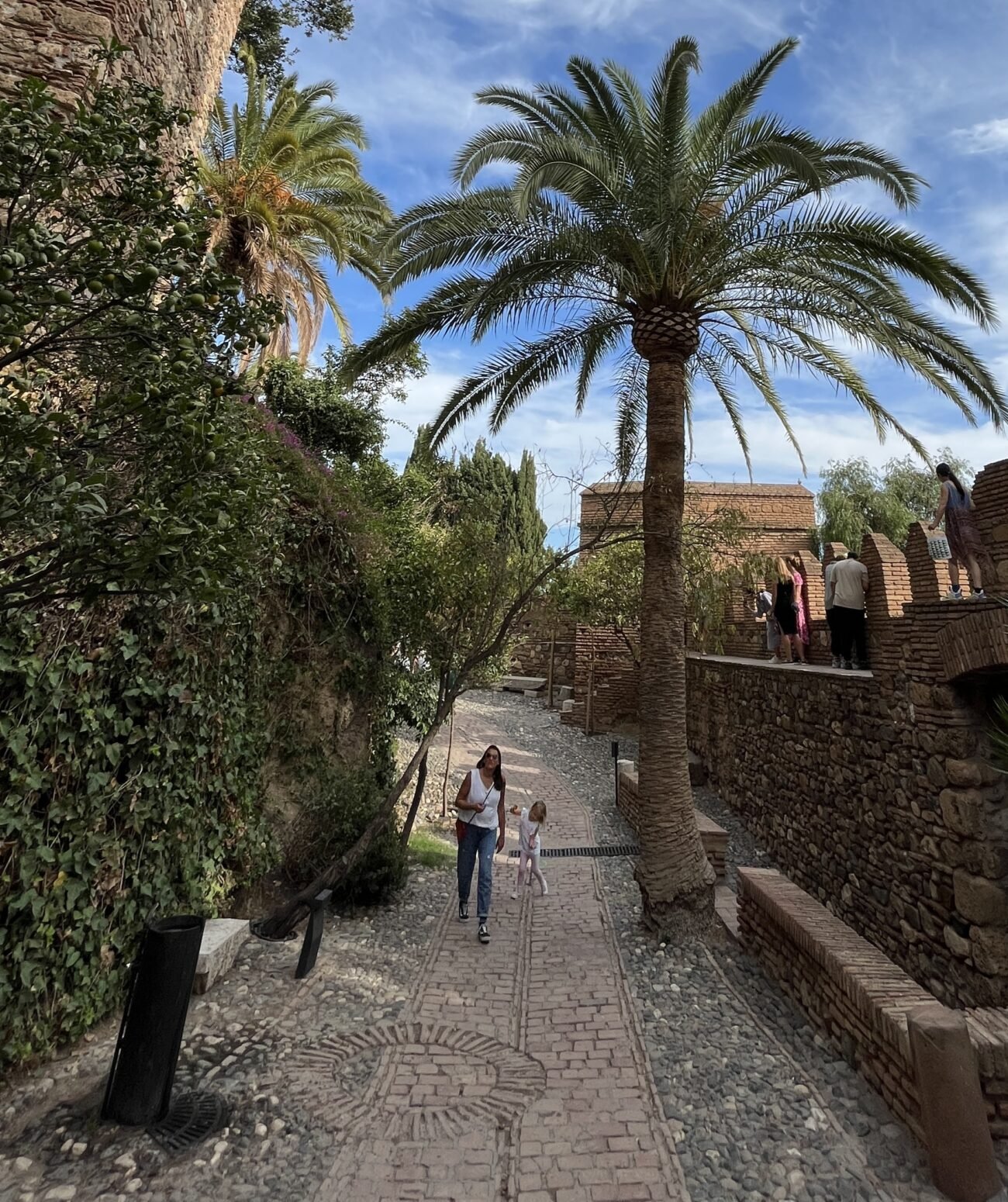Alcazaba de Málaga

The Alcazaba of Malaga is one of the city’s most distinctive landmarks and an essential stop for anyone exploring southern Spain.
Built during the Muslim-ruled period of Al-Andalus, this impressive complex combines a palace, defensive fortifications and tranquil gardens. It is also one of the best-preserved Moorish citadels in Spain, attracting thousands of visitors every year.
A hilltop of strategic importance
The site of today’s Alcazaba has held strategic value for centuries. Its elevated position overlooks Malaga’s port and the historic centre, making it a natural stronghold.
The Phoenicians settled here around 600 BC, followed by the Romans, who built the Roman Theatre on the western slope. During the Islamic era, the Alcazaba was first conceived as a fortress before evolving into a palace-fortress and seat of government.
The history of the Alcazaba
Construction of the Alcazaba began under Abd al-Rahman I between 756 and 780 AD, using the remains of a Roman fortification. The Hammudid Dynasty in the 11th century transformed it into a palatial seat of power.
Over the centuries, successive rulers expanded and embellished the complex. The Zirids of Granada captured Malaga in 1056 and renovated much of the inner palace. Later, during the rule of the Emirate of Granada, extensive reconstruction was undertaken by Muhammad II and Yusuf I. The latter also built the Castillo de Gibralfaro on the neighbouring hill, linked to the Alcazaba by a fortified passage.

Muslim control ended on 18 August 1487, when Ferdinand and Isabella seized Malaga during La Reconquista. Their flag was raised over the Torre del Homenaje, marking the Christian conquest.
After its military role declined in the 18th century, the Alcazaba became a residential neighbourhood until 1933, when its inhabitants were relocated. Restoration and archaeological work has been ongoing ever since.
Visiting Malaga’s Alcazaba today
Unlike its later counterparts, the Alcázar of Seville and the Alhambra of Granada, Malaga’s Alcazaba predates them by three centuries, giving it a unique character.
Today, visitors can explore its surviving double walls, over 100 towers and beautifully restored Nasrid and Taifa-period palaces. The well-kept gardens also offer a peaceful retreat in the heart of the city.
If you plan a visit, check the official opening hours and ticket prices, as they vary depending on the season. Entry is affordable, making it one of Malaga’s best-value cultural experiences.
Daryl is the co-founder of Malaga Guru. He is a copywriter, editor and translator who moved to Malaga over a decade ago, having first fallen in love with the city on his Erasmus year. After working for many years at local expat newspaper SUR in English, Daryl gained expert knowledge in life from the perspective of foreign residents and decided to co-found this site in 2016.

